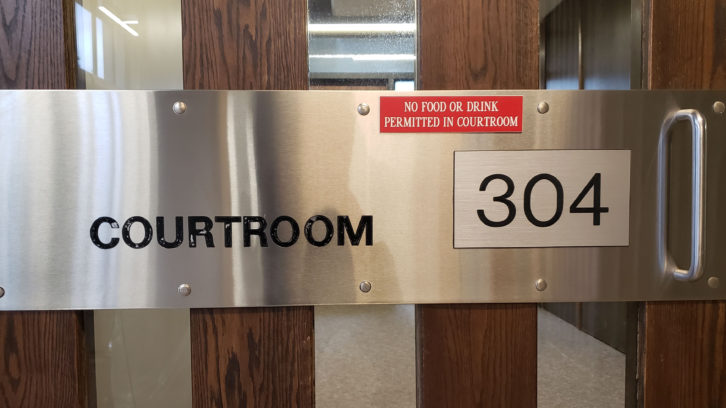Jimmy Melvin Jr. gets dangerous offender designation
Melvin has been given an indefinite sentence due to his history of violence in the community and in custody

caption
Senior Crown counsel Rick Woodburn (centre) comments on Justice Rosinski’s decision Monday outside the courtroom.The sentencing hearing for notorious Halifax crime figure Jimmy Melvin Jr. only lasted five minutes after being delayed for years.
Nova Scotia Supreme Court Justice Peter Rosinski handed down his decision in court on Monday.
Rosinksi said he was satisfied that Melvin should be declared a dangerous offender, and sentenced him to an indeterminate period of imprisonment due to his high risk to the public.
In November, the Crown notified Rosinski it was urging Melvin be sentenced as a dangerous offender for his conviction in 2017 for the attempted murder and conspiracy to commit murder of Terry Marriott Jr.
A dangerous offender designation in Canada means that Melvin will be in prison indefinitely unless his behaviour improves. If Melvin participates in rehabilitation programs and ceases his violent behaviour, the Parole Board of Canada may decide he is fit for release in the future.
Rosinski noted in his decision that Melvin has made little effort to change for the better, and has continued to offend violently in prison against both inmates and correctional officers.
“An indeterminate sentence provides Mr. Melvin with only one way out of continued incarceration …by establishing a record of positive change before the Parole Board,” Rosinski wrote in his decision.

caption
Jimmy Melvin’s case had been delayed due to his dismissal of previous lawyers and COVID-19 disruptions.Rick Woodburn was one of the three Crowns arguing for the dangerous offender designation.
“This should send a message to like-minded individuals that their behaviour inside of correctional facilities counts,” Woodburn said outside court.
As a dangerous offender, Melvin will have his next parole hearing in seven years and then every two years after that.
Melvin has had numerous prior convictions ranging from assaults, to threats, to weapons charges.
He was recently charged in the assault of Joshua Preeper at the federal institution in Renous, N.B., and is serving a federal sentence for assaulting correctional staff. This all factored into Rosinski’s decision.
Rosinski also authorized a number of other orders including having Melvin’s DNA entered into a national database, a ban from owning or possessing weapons for life, and a prohibition from communicating with any victims or witnesses in his trial.
About the author
Nathan Horne
Nathan Horne is a journalist interested in breaking stories that highlight the inequalities and injustices in society.
